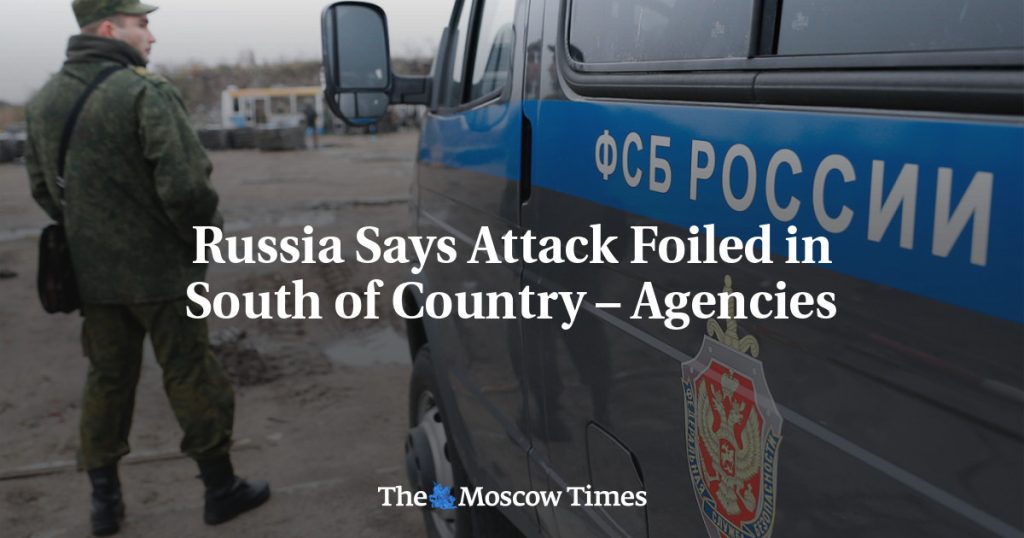The Russian security services announced the arrest of three individuals from a Central Asian country who were planning a terrorist attack in the south of Russia. The FSB stated that they had thwarted the terrorist activities of these individuals who were plotting to detonate an explosive device in a public place in the Stavropol region. Russian television showed images of the suspects being detained by FSB agents, and it was reported that ingredients for an improvised explosive device and chemical substances were found at the home of one of the suspects.
The arrest of the three individuals comes in the wake of a tragic massacre at the Crocus City concert hall near Moscow, where at least 144 people lost their lives. The Stavropol region, where the planned attack was to take place, is located in the North Caucasus region of southern Russia, bordering areas such as Dagestan and Chechnya. This region has been known for previous incidents of terrorism and is considered a volatile and unstable area in terms of security. The recent arrest highlights the ongoing threat of terrorism in Russia and the efforts of security services to prevent further attacks.
The identification of the suspects as being from a Central Asian country raises concerns about the potential connections to international terrorist networks and the threat of foreign fighters operating in the region. Central Asia has been a source of recruitment for various extremist groups, and individuals from these countries have been involved in attacks in different parts of the world. The presence of these suspects in Russia underscores the need for increased vigilance and cooperation between countries to combat terrorism and prevent radicalization.
The discovery of bomb-making materials and chemicals at the home of one of the suspects indicates the seriousness of the threat posed by these individuals and the potential devastation that could have occurred if the attack had been carried out. The use of improvised explosive devices is a common tactic employed by terrorist groups to cause mass casualties and instill fear in the population. The FSB’s swift action in apprehending the suspects likely prevented a major tragedy from unfolding in the Stavropol region and underscores the importance of effective intelligence gathering and counterterrorism measures.
The incident also underscores the ongoing security challenges that Russia faces in the volatile North Caucasus region, where separatist movements and extremist groups have been active for years. The threat of terrorism remains high in this area, and the authorities are constantly working to prevent attacks and maintain stability. The arrests of the three individuals involved in the planned attack demonstrate the commitment of Russian security services to safeguarding the country and its citizens from the scourge of terrorism.
In conclusion, the arrest of three individuals from a Central Asian country who were plotting a terrorist attack in the Stavropol region of southern Russia highlights the ongoing threat of terrorism in the country and the efforts of security services to counter this threat. The arrests come in the aftermath of a tragic massacre at a concert hall near Moscow, underscoring the need for enhanced security measures to prevent further attacks. The identification of the suspects as being from Central Asia raises concerns about potential links to international terrorist networks and the presence of foreign fighters in the region. The discovery of bomb-making materials at the suspect’s home emphasizes the seriousness of the threat and the importance of effective counterterrorism measures in preventing such attacks. The incident also underscores the security challenges that Russia faces, particularly in the volatile North Caucasus region, where separatist movements and extremist groups are active. The swift action of the FSB in apprehending the suspects highlights the crucial role of intelligence gathering and cooperation in combating terrorism and ensuring the safety of the population.















